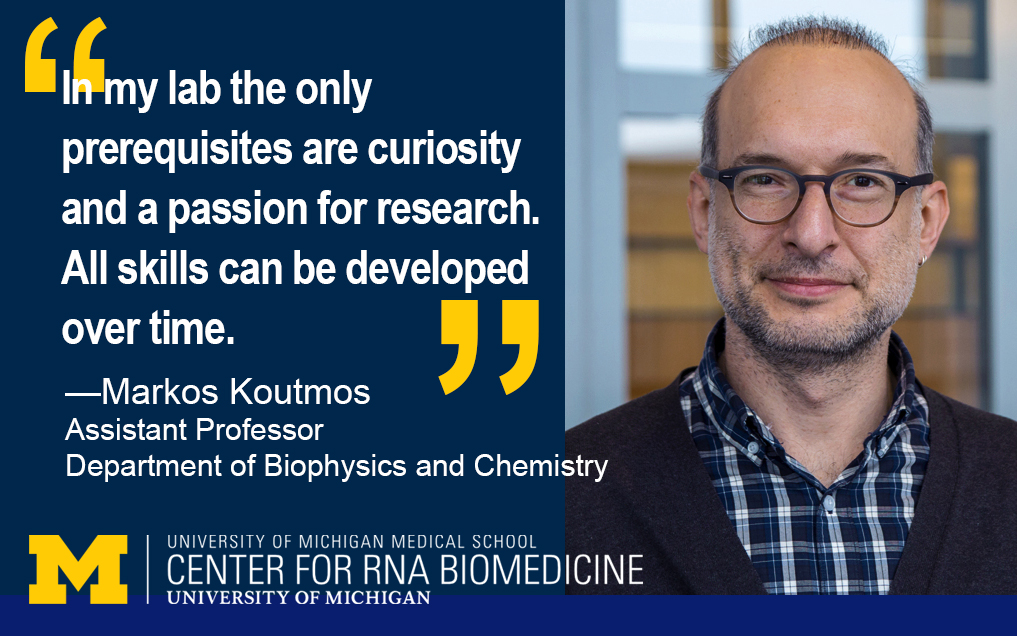RNA Faculty Spotlight – Markos Koutmos, Biophysics and Chemistry
 Markos Koutmos, Ph.D.
Markos Koutmos, Ph.D.
Assistant Professor of Biophysics & Chemistry
Markos Koutmos joined the Center’s Executive Committee in 2020.
The Koutmos lab is interested in understanding how the 3D structure and dynamics of proteins and RNAs drive their biological function. His lab combines chemistry, biophysics and biology approaches to build a foundation of basic knowledge for understanding the remarkable chemistries catalyzed by nature’s best enzymes, uncovering the roles of biomacromolecules in disease, and discovering new classes of therapeutic targets. The Koutmos lab is specifically interested in RNA modifications and RNA/protein interactions, in mitochondrial RNA biology and processing and in RNA structure and dynamics.
- What are your research interests?
I am interested in understanding life processes on a molecular level. I am fascinated by the complexity and beauty of how the atoms within macromolecules arrange in space, and how their dynamic motions contribute to their function.
- Who/what brought you to science?
My fascination with science dates all the way back to when I was a kid. I am incorrigibly curious. Fortunately, the world around me offers an unlimited array of stimuli and inspirations that science and the scientific method give me the tools to explore. However, the main reason that I am still in science is the influence and inspiration that I drew from my remarkable post-doctoral advisor, Professor Martha Ludwig.
- What advice would you give to students who’d like to get more involved in research?
I would advise them to be curious, relentless and bold, and encourage them to never stop following their dreams.
- Are there any opportunities for students to engage in your projects, currently or in the future?
Absolutely! My lab is interested in students with a passion for RNA research and have multiple projects available for curious, talented young scientists.
- What skills would they need, and what could they expect to learn?
In my lab the only prerequisites are curiosity and a passion for research. All skills can be developed over time. In my lab a student will learn about structural biology methods such as X-Ray crystallography, Electron Microscopy and NMR, in learning how to acquire and produce RNA and proteins of interest as well as learn how to interrogate their activity and function through a combination of biochemical and biophysical assays.
- What profession other than your own would you like to attempt?
Good question! I already have my dream job so it is something that I haven’t really considered much. I guess I would do something that would require me to spend a lot of time outdoors (lead hiking or biking tours in mountains).
